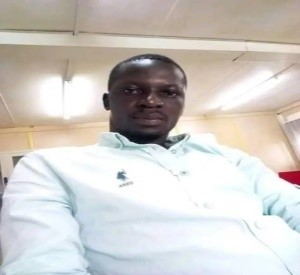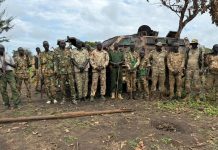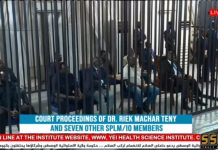By Umba Peter Bosco
Central Equatoria State boasts of enormous resources such as natural forests, wildlife, fertile land, and valuable human capital. But the level of development it has attained so far raises questions on issues around transparency, corruption, and mismanagement of public resources. Allegations of theft of public funds, illegal land sale and acquisition, exploitation of forests for personal gain by top government officials, continued human rights violations by individual elements in the militaries sparked critical public debate in the media in recent months leading to significant decline in public opinion, distrust, and loss of confidence in government and its ability to stabilize peace and security, deliver basic public services, and to uphold the rule of law.
The state government led by SPLM has a vague approach to security stabilization which makes it difficult to protect its population. The state leadership is widely criticized for providing sub-standard and adequate basic public services including its inability to curb crime in Juba, the state and national capital and beyond. The public and civil society perceives the state government as a flamboyant spender, often violating the public finance management policies at the watch of the malfunctioning state anti-corruption commission. The state incurs unnecessary expenditures on independence anniversaries, security operations, and top government officials’ travel and medical trips abroad which are normally exaggerated without accountability. Such level of financial indiscipline wreaks SPLM’s overall integrity and renders it defenseless in the political arena.
Civil rights and freedoms are also under attack in some parts of Central Equatoria. Fingers are being pointed by some members of the civil society at local authorities in Yei and Lainya counties for becoming more intolerant towards critical voices on contentious issues focusing on environment, human rights, justice and rule of law, transparency and accountability. Such behavior and actions deepen public distrust and erodes confidence in the leadership. The lack of genuine political will to address the issues outlined above will negatively affect SPLM’s efforts to secure victory in next year’s poll.
It should therefore be noted that SPLM’s victory in next year’s poll largely depends on its willingness and ability to lead efforts in pragmatically tackling corruption and impunity, ensuring transparency and accountability, justice and respect for human rights, embracing tolerance towards diverse critical voices, delivering basic public services of good quality, and demonstrating proactive and responsive leadership. SPLM should also transform itself into a contemporary political organization by embarking on structural and institutional reforms to enhance its capacity in managing the affairs of the state and country as a whole. It should also review its policies in regard to mobilization and recruitment of competent members who don’t only view the party as a means to access opportunities but rather committed to the realization of the party’s ideology. Transforming the party will strengthen its influence in its political constituencies and broaden its support base, hence preventing migration of individual members to emerging political parties such as Revive South Sudan Party among others. Though fraudulent, SPLM can ascertain victory through rigging and infiltrating the judiciary, electoral commission, and national security service that are often alleged to be pro-SPLM. This last option of rigging puts the country on a potential risk of returning to another bloody civil war which should be avoided and rejected in its entirety.
Umba Peter Bosco is a political scientist and conflict analyst reachable via umbapeter28@gmail.com





